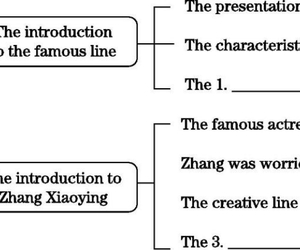|
高考抢分知识点清单 1. a/an的区别: an hour, an honest boy, an honor (hour, honest, honor 中的h不发音) a university, a unique person, an umbrella(university/unique中字母u发/ju/,umbrella中u发元音/ʌ/) 2. 连系动词归类:以下连系动词之后都可以接形容词作表语 1)状态连系动词:am ,is, are 2)持续连系动词:keep, remain, stay, lie, stand 3)表像连系动词: seem, appear, look 4)感官连系动词:feel, smell, sound, taste 5)变化连系动词:become, grow, turn, fall, get, go, come, run. 6)终止连系动词:prove, turn out 3.以下表示心理感受的动词,都是及物动词,大都含有“使...”的意思,它们的现在分词和过去分词都形容词化,用法不相同,短文改错经常考查:v+ing可作定语和表语,描述的对象多为物; v+ed多用作表语,主语为人,如果作定语,名词也是跟人有关的。 The story must be very interesting. His interested expression shows that he is interested in the interesting story. amaze使惊奇, amuse使快乐, astonish使震惊, annoy使烦恼, bore使麻烦, confuse使迷惑, delight使高兴, depress使沮丧, disappoint使失望, discourage使沮丧, encourage使鼓舞, excite使兴奋, fascinate使着迷, frighten使害怕, inspire使受鼓舞, interest使感兴趣, move使感动, puzzle使着迷, relax使放松, satisfy使满足, surprise使惊讶, tire使疲劳, worry使担忧 3. 以下名词不可数: advice建议 baggage=luggage行李 equipment设备 fun乐趣 furniture家具, homework作业 housework家务 information信息 news消息 progress进步 5.大部分的形容词+ly变为相对应的副词,但以下形容词“去e加y”变副词: 大概真正舒适的温柔可能简单得可怕 probable--probably true-truly comfortable--comfortably gentle--gently possible--possibly simple--simply terrible--terribly 6. 词形变化要去e的单词:9.5.12在争论有价值的可信的真相 nine--ninth five--fifth twelve—twelfth argue v.- argument n. 争论 true adj.--truth n.真相 value n/v.--valuable adj. 有价值的 believe v--believable adj.可信的 7. 以下动词去e加al 变名词 arrive---arrival 到达 approve--approval 赞成,批准 bury--burial 埋葬 dispose-disposal清除,去掉 propose--proposal建议 refuse-refusal拒绝 remove--removal去除,移动 survive--survival幸存 8. 常见的动词变名词的特殊变化 explain--explanation解释 describe--description描述 absorb--absorption吸收 subscribe--subscription订阅 breathe/briːð/--breath/breθ/呼吸 bathe/beɪð/--bath/bɑːθ/洗澡 complain--complaint 抱怨 restrain---restraint抑制 persue--persuit追求 9. 形容词变名词的一些特殊变化 wide---width深度 long---length长度 deep--depth宽度 warm---warmth温暖 strong-- strength强度 young--youth青年人 grow--growth生长 10. by 这个介词很特别, by +ving表示方式 (be)+V过去分词 +by Encouraged by his headteacher, he decided to study harder. 过去分词作状语 As he was encouraged by his headteacher, he decided to study harder.被动语态作从句的谓语 The headteacher encouraged his students by telling them lots of examples. 11. 以下单词有方向,注意搭配。 here这儿--there那儿 bring带来--take带走 come来--go去 borrow主语借进来--lend主语借出去 常用于以下固定短语: borrow sth. from sb. borrow sb’s sth. lend sth. to sb. lend sb. sth. He lent me his bike. He lent his bike to me. I borrowed the bike from him. I borrowed his bike. 12.以元音字母+r 结尾的动词,现在分词和过去分词,有的要双写r,有的不要双写(适用于重读闭音节且末尾只有一个辅音字母的动词这一规则) occur---occurring--occurred--occurrence n. 发生 prefer---preferring--preferred---preference n. 偏爱,喜欢 refer---referring--referred--reference n. 提及 stir---stirring--stirred搅拌 star---starring--starred 主演 offer---offering--offered 提供 enter---entering--entered 进入 13.以下动词只能用动名词作宾语: 承认建议避免允许欣赏: admit advise avoid allow appreciate 开始忍不住否认考虑继续延迟:begin can't help deny consider continue delay 喜欢享受借口逃避完成: fancy enjoy excuse escape finish 介意提到禁止错过保持想象: mind mention forbid miss keep imagine 冒险建议停止允许练习原谅 risk suggest stop permit practice pardon 14.以下短语中的to都是介词,其后接动词需用动名词作宾语 look forward to期待 get down to着手做 object to反对 stick to坚持 come to提及 refer to提到 lead to导致 adapt to适应 be accustomed to习惯做 devote oneself to献身于 pay attention to注意 contribute to有助于 be used to 习惯 15. 感官动词see, hear, watch, notice, observe, spot等词之后用现在分词作宾补表示片断的、正在进行 的动作。此外还有catch, discover, find, get, have, keep, set等动词之后也用现在分词作宾补。 Listen. Can you hear him playing the piano? Don’t let me catch you stepping on the grass again. 16. 感官动词see, hear, watch, observe, notice, spot等词之后接不定式作宾补,必须省略不定式符号to,表示经常的、过去的、整个过程的动作,宾补常为非延续性动词。 I observed a kid slip into a supermarket. He heard his son bang into his own room. 17. 使役动词make, let, have及help(可带也可不带to)之后,也要用不带to的动词不定式作宾补。 My parents have me study all day long. Don't make your son work so late. My son often helps me (to) do the housework. Let's stop to have a rest(目的状语). He made his son study all day long(改被动) 18. 接不定式作宾语的动词顺口溜: 同意选择申请问负担: agree choose apply ask afford 决定需要期待失败: decide/determine demand/desire expect fail 碰巧希望打算学会经营: happen hope mean/intend learn manage 假装准备提供计划: pretend prepare offer plan 拒绝承诺选择希望: refuse promise select wish I can’t afford to buy a house on my own, so I decide to rent one instead. 19. It 代替不定式作形式主语的两个句型用法区别:注意介词用错 It is+adj.+for sb. + to do sth. 形容词用来描述不定式的动作 It is+adj.+of sb.+to do sth. 形容词用来描述人的品德、特征等 kind, nice, wise, silly, polite, impolite, friendly, foolish, clever It’s very kind of you to help me with my English. It’s very important for you to study hard. 20.with的复合宾语 adj./adv. prep.短语 with +O+OC doing sth.主动 done sth.被动 to do sth.将来 1)With so many good doctors and nurses away, you'd better try to keep healthy. 2)With his clothes on, he fell sound asleep. 3)With much homework to do, I can't go to the movie with you tonight. 4)With nothing to do at home, so many people feel bored these days. 5)With my parents helping me with the house-work, I feel quite relaxed these days. 6)With homework done, the little boy ran home, singing all the way. 7)With hands tied behind, the thief was brought in. 8)With trees surrounding the house, I can always have a nice summer in my hometown. 21.定语从句的引导词汇总表 定语从句的引导词 | | 词 | 指代及充当成分 | 可否省略 | 限制性 | 非限制性 | | | | | | | | | | | | | | | | | | | | | | | | | | | | | | | | | | | | | | | | | | | | | | | |
22.名词性从句引导词汇总表 23.状语从句引导词汇总表 状语从句的引导词 | | 主要引导词 | | when, whenever,before, after, as soon as,as, until,till, while, since | | | | as, just as, as if, as though, they way that, in the way that | | because>as=since>now that>for | | in order that, so that(从句有情态动词/一般将来时态), for fear that, in case | | so, so...that, such...that, so that(放主句之后,常用过去时态) | | if, so long as, as long as | | though, although, even if/even though, mo matter what, no matter who, no matter which, no matter where, no matter when, no matter who, whether...or... | | as...as..., not so/as...as, more/less...than, the+比较级,the+比较级 |
24. 各种逻辑标记词汇总表 逻辑 | 标记词 | | and=as well as, both...and, neither...nor, either...or, not only...(but) (also), similar | | | | so, therefore, as a result (of), so... that, such... that, so that, hence, consequently | | | | but, however, yet, instead, rather, while, on the contrary, in contrast, by comparison(相比之下), nevertheless(然而) | | | | too, what's more, even, moreover, more than that, besides | | firstly, secondly, then, afterwards, finally | | for example, namely,that is to say,in fact, as a matter of fact ---从抽象到具体 | | in short, in a word, in brief, in summary, to conclude, in conclusion, to sum up, generally speaking, in general |
25.阅读理解中表达观点态度的形容词 贬义 critical [ˈkrɪtɪkl] 批评的 depressed [dɪˈprest] 消沉的 disapproval [ˌdɪsəˈpruːvl] 不赞成的 doubtful [ˈdaʊtfl] 可疑的,疑心的 dissatisfied[dɪsˈsætɪsfaɪd] (对…) 不满的; 不高兴的; 不满意的; negative [ˈneɡətɪv] 否定的, 消极的 oppositional [ˌɒpəˈzɪʃənəl] 反对的,对立的 pessimistic [ˌpesɪˈmɪstɪk] 悲观的 prejudiced [ˈpredʒudɪst ] 有偏见的 puzzled [ˈpʌzld] 困惑的,迷茫的 scared [skeəd] 恐惧的 sensitive [ˈsensətɪv] 敏感的 sorry [ˈsɒri] 难过; 惋惜; 同情; 遗憾; 不忍; subjective [səbˈdʒektɪv] 主观的 suspicious [səˈspɪʃəs] 可疑的, 怀疑的 sympathetic [ˌsɪmpəˈθetɪk] 同情的 unconcerned [ˌʌnkənˈsɜːnd] 不关心的 worried [ˈwʌrid] 焦虑的 中性 Conservative [kənˈsɜːrvətɪv] 保守的; 守旧的 disinterested [dɪsˈɪntrəstɪd] 客观的, 无私的 factual [ˈfæktʃuəl] 事实的, 实际的 impersonal [ɪmˈpɜːsənl] 非个人的 mild [maɪld] 温和的,适度的 mixed [mɪkst] 混合的,喜忧参半 moderate [ˈmɒdəreɪt] 中等的, 适度的 tolerant 容忍的,宽容的 objective [əbˈdʒektɪv] 客观的,就事论事的 reserved [rɪˈzɜːvd] 保留的 understanding [ˌʌndəˈstændɪŋ] 善解人意的; 富有同情心的 unprejudiced [ʌnˈpredʒədɪst] 没有偏见的 褒义 approval [əˈpruːvl] 赞成的 concerned [kənˈsɜːnd] 关注的 confident [ˈkɒnfɪdənt] 自信的, 确信的 delighted [dɪˈlaɪtɪd] 高兴的; 愉快的 enthusiastic [ɪnˌθjuːziˈæstɪk] 热心的,热情的 favorable [ˈfeɪvərəbl] 有利的 interested [ˈɪntrəstɪd] 感兴趣的 optimistic [ˌɒptɪˈmɪstɪk] 乐观的 positive [ˈpɒzətɪv] 肯定的,积极的 supportive [səˈpɔːtɪv] 支持的,支援的
|  Book 2 Unit 1 语境读写-文化遗产213 人气#同步教辅
Book 2 Unit 1 语境读写-文化遗产213 人气#同步教辅 衔接点06 新课6 必修第一册UNIT2 TRAVELLIN208 人气#同步教辅
衔接点06 新课6 必修第一册UNIT2 TRAVELLIN208 人气#同步教辅 衔接点06 新课6 必修第一册UNIT2 TRAVELLIN193 人气#同步教辅
衔接点06 新课6 必修第一册UNIT2 TRAVELLIN193 人气#同步教辅 衔接点05 新课5 必修第一册UNIT2 TRAVELLIN211 人气#同步教辅
衔接点05 新课5 必修第一册UNIT2 TRAVELLIN211 人气#同步教辅